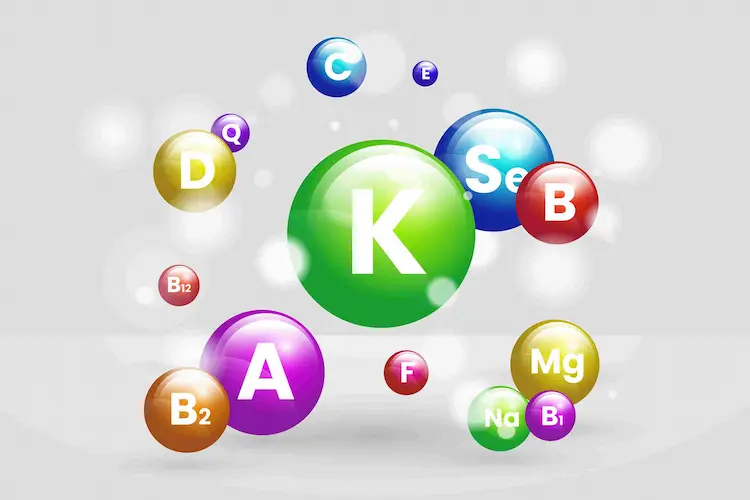In today is fast-paced world, many are turning to yoga as a refuge from the daily hustle and bustle. Whether you are a busy professional, a health enthusiast, or just someone looking to find some peace of mind, yoga offers a pathway to tranquility. But what exactly is yoga, and how can it benefit you? In this blog post, we will explore the fundamentals of yoga, its myriad benefits, and how even beginners can start their yoga journeys. Prepare to unravel the mystery behind yoga and learn how it can transform your life.

Understanding Yoga and Its Origins
Yoga is more than just a physical exercise; it is an ancient practice that dates back thousands of years. Originating in India, yoga combines physical postures, breathing techniques, and meditation to promote harmony between the mind, body, and spirit. But what does yoga involve, exactly? It is a holistic approach to health and wellness that encourages self-awareness, mindfulness, and personal growth. The word yoga is derived from the Sanskrit word yuj, which means to unite or join. This concept of union is at the core of yoga philosophy, emphasizing the connection between mind and body. The practice encompasses various disciplines, including physical postures (asanas), breathing exercises (pranayama), and meditation techniques. Each component works together to enhance overall well-being and mental clarity. For beginners, yoga may feel intimidating, but it is important to remember that yoga is a personal practice. It is not about achieving perfect poses or competing with others; it is about self-discovery and finding balance in your life. By approaching yoga with an open mind and a willingness to learn, you can make significant strides in your health and wellness journey.
The Benefits of Yoga for Mind and Body
Yoga offers a wealth of benefits for both the mind and body. One of the most well-known advantages is its ability to improve flexibility and strength. Through consistent practice, you will notice increased muscle tone and better posture, which can alleviate common aches and pains associated with a sedentary lifestyle. Beyond the physical benefits, yoga also has a profound impact on mental health. Many practitioners report reduced stress levels and improved focus, thanks to the meditative aspects of yoga. By incorporating breathing exercises and mindfulness techniques, yoga helps calm the mind and foster emotional resilience. For busy professionals, this mental clarity can translate into better productivity and decision-making. Additionally, yoga has been shown to boost the immune system and enhance overall vitality. By promoting relaxation and reducing cortisol levels, yoga supports the body natural healing processes. This holistic approach to health makes yoga a valuable tool for maintaining wellness in today hectic world.
Getting Started with Yoga as a Beginner
Starting yoga as a beginner might feel overwhelming, but it does not have to be. Begin by setting realistic goals and expectations for yourself. Remember that yoga is a personal practice, and it is essential to listen to your body and progress at your own pace. To start, consider joining a beginner-friendly class, either in-person or online, to learn the basics from a qualified instructor. When choosing a class, look for one that focuses on foundational poses and techniques. This will help you build a strong foundation and confidence in your practice. Do not hesitate to ask questions or seek guidance from your instructor—they are there to support you on your yoga journey. Creating a dedicated space for your yoga practice can also make a significant difference. Find a quiet, clutter-free area in your home where you can roll out your mat and focus on your practice without distractions. Establishing a routine, even if it is just a few minutes each day, will help you stay consistent and reap the full benefits of yoga.
Exploring the Four Types of Yoga
Yoga is a diverse practice with many styles, each offering unique benefits and experiences. Familiarizing yourself with the four primary types of yoga can help you find the style that resonates best with you. These types include Hatha, Vinyasa, Ashtanga, and Iyengar yoga, each with its distinct characteristics and focus. Hatha yoga is the most common form and often regarded as the foundation of modern yoga practices. It emphasizes slow-paced movements, gentle postures, and breathing exercises, making it ideal for beginners seeking to develop a strong foundation in yoga. Vinyasa yoga, on the other hand, is more dynamic and fast-paced. It involves fluid transitions between poses, synchronized with breath, creating a dance-like flow. This style of yoga is perfect for those looking to build strength and endurance while enjoying a creative and energizing practice. Ashtanga yoga is a more rigorous style that follows a specific sequence of poses. It requires discipline and dedication, making it better suited for those with some experience in yoga. Ashtanga focuses on building strength and flexibility through repetitive sequences, offering a challenging yet rewarding practice. Finally, Iyengar yoga emphasizes precision and alignment in each pose. It is known for its use of props, such as blocks and straps, to help practitioners achieve proper form. This style of yoga is excellent for those who want to refine their technique and pay close attention to detail.
Incorporating Meditation Techniques into Your Practice
Meditation is an integral part of yoga, offering numerous mental and emotional benefits. By incorporating meditation techniques into your yoga practice, you can enhance your overall well-being and deepen your connection to yourself. Meditation helps cultivate mindfulness and self-awareness, which can lead to greater clarity and inner peace. One simple meditation technique to try is focused breathing. Begin by sitting comfortably, closing your eyes, and taking slow, deep breaths. Focus your attention on the rhythm of your breath, observing its natural flow without judgment. When your mind starts to wander, gently bring your focus back to your breath. This practice can help quiet the mind and reduce stress. Another meditation technique is guided visualization, where you imagine a peaceful scene or experience. This method can help you relax and mentally escape the demands of daily life. Whether you are visualizing a serene beach or a lush forest, this practice encourages a sense of calm and tranquility. Consistent meditation practice can lead to improved emotional regulation and increased resilience in the face of challenges. By integrating these techniques into your yoga practice, you will be better equipped to handle life is ups and downs with grace and composure.
Tips for Busy Professionals to Maintain a Yoga Routine
For busy professionals, finding time for self-care can be a challenge. However, incorporating yoga into your daily routine can provide immense benefits for both your personal and professional life. With a few practical tips, you can maintain a consistent yoga practice even amidst a hectic schedule. First, prioritize your practice by scheduling it into your day, just like any other important task. Set aside a specific time each day for yoga, whether its in the morning, during lunch, or in the evening. Consistency is key to reaping the benefits of yoga, so make it a non-negotiable part of your daily routine. Next, keep your practice simple and accessible. Choose short, beginner-friendly sessions that fit within your schedule, even if its just 10-15 minutes a day. Remember, quality over quantity—it is better to have a short, focused practice than none at all. Lastly, stay motivated by connecting with a community of like-minded individuals. Join local yoga classes, online forums, or social media groups to share experiences, ask questions, and find inspiration. Engaging with a supportive community can help you stay committed and make your yoga practice a rewarding part of your daily life.
Balancing Health and Wellness through Yoga
Yoga is a powerful tool for achieving balance in your health and wellness. By integrating yoga into your daily routine, you can cultivate a harmonious relationship between your mind, body, and spirit. This balance is essential for maintaining overall well-being and thriving in all aspects of life. One way yoga promotes balance is by encouraging mindfulness and self-awareness. Through regular practice, you will develop a greater understanding of your body is needs and signals, enabling you to make informed decisions about your health and lifestyle. This heightened awareness can lead to improved habits, such as mindful eating and stress management. Additionally, yoga fosters emotional balance by teaching you to manage stress and anxiety effectively. The calming effects of deep breathing and meditation can help regulate your emotions, allowing you to respond to challenges with a clear and focused mind. This emotional stability is crucial for maintaining healthy relationships and a positive outlook on life. By practicing yoga consistently, you will experience a sense of balance that extends beyond the mat, enhancing your overall quality of life and well-being.
Inspiring Transformation through Yoga for Health Enthusiasts
For health enthusiasts seeking personal growth and transformation, yoga offers a holistic approach to wellness that goes beyond physical fitness. By exploring the deeper aspects of yoga, you can unlock new levels of self-awareness, resilience, and creativity, empowering you to lead a more fulfilling life. Yoga encourages transformation by promoting self-reflection and introspection. Through regular practice, you will gain insights into your strengths, weaknesses, and desires, enabling you to set meaningful goals and pursue your passions with purpose and determination. Additionally, yoga fosters a growth mindset by challenging you to step outside your comfort zone and explore new possibilities. By pushing your limits and trying new poses or meditation techniques, you will develop the confidence and resilience needed to overcome obstacles and achieve personal growth. Finally, yoga inspires creativity by cultivating a sense of curiosity and wonder. By approaching your practice with an open mind and a willingness to learn, you will discover new ways of thinking, problem-solving, and expressing yourself. This creativity can enhance your personal and professional life, leading to greater success and satisfaction.
Yoga as a Lifelong Journey for Meditation Seekers
For those seeking deeper spiritual connections and inner peace, yoga serves as a lifelong journey of self-discovery and personal growth. Through meditation and mindfulness practices, yoga provides a path to explore the deeper dimensions of your being and cultivate a profound sense of inner peace. Yoga as a lifelong practice encourages patience and perseverance. The process of learning and refining poses, meditation techniques, and breathing exercises can be challenging, but it is also incredibly rewarding. By committing to this lifelong journey, you will develop a deep sense of gratitude and appreciation for your growth and progress.
Meditation seekers can also benefit from the spiritual aspects of yoga, which invite introspection and self-discovery. By connecting with your inner self through meditation, you will gain insights into your values, beliefs, and aspirations, enabling you to live a more authentic and purposeful life. Finally, yoga as a lifelong practice fosters a sense of community and belonging. By connecting with fellow practitioners, you will find support, encouragement, and inspiration to continue your yoga journey. This sense of connection can enhance your overall well-being and contribute to a fulfilling and meaningful life.
Yoga offers a diverse and rewarding practice that enhances well-being in all aspects of life. Whether you are a beginner, a health enthusiast, or a busy professional, yoga provides the tools and techniques necessary to cultivate balance, mindfulness, and personal growth. By understanding the fundamental principles of yoga, exploring different styles, and incorporating meditation techniques, you can create a personalized practice that enriches your life.
Incorporating yoga into your daily routine may seem challenging at first, but with dedication and commitment, you will soon experience the countless benefits it has to offer. Remember, yoga is a personal and lifelong journey—one that is as unique as you are.
To explore further and deepen your understanding of yoga, consider attending workshops, reading books, or connecting with a community of fellow practitioners. With each step you take in your yoga practice, you will unlock new levels of self-awareness, resilience, and creativity, empowering you to lead a more fulfilling and balanced life.















Comments
Leave a comment